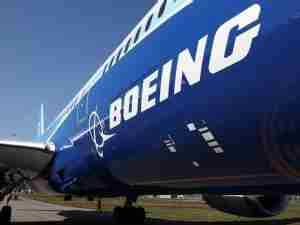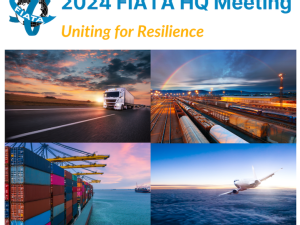A Chinese solution to Virgin’s marriage of inconvenience
By: | Apr 13 2016 at 04:17 AM | Air Cargo
At times, international aviation seems less like a modern high-tech industry and more like medieval European diplomacy.
All those state-controlled carriers tussling over territory at airports and control of trade routes. There’s even the odd arranged marriage to cement relationships between fractious powers.
Under Chief Executive Officer John Borghetti, Virgin Australia has played the marriage game with the skill of a Habsburg princess for several years. Nominally listed on the Australian Securities Exchange, it’s almost a joint venture, with free-floating shares representing just 14 percent of the total. Richard Branson’s Virgin Group has another 10 percent, with the remainder split about equally between Air New Zealand, Etihad Airways, and Singapore Airlines.
The four have a common enemy in Qantas, Australia’s largest carrier. A couple of years ago, the arrangement was working so well that Qantas claimed the group was conspiring to drive it into bankruptcy. In quick succession it unsuccessfully lobbied Australia’s government to block the foreign players from pumping cash into Virgin through a share placement, and then sought support from the government for its own balance sheet.
Things have changed. Virgin’s attempt to crack Qantas’s stranglehold of the domestic market failed, and while Virgin’s stock has slumped almost 30 percent in the past 12 months, Qantas is up 11 percent. Qantas in February posted a record A$688 million ($526 million) first-half profit, and analysts expect it to chalk up another A$640 million or so in the current half. Virgin scraped by with A$46 million in the first half, and should dip into a loss in the six months through June.
Airlines can carry on unprofitably for an astonishingly long time, but there are limits.
Last month, Virgin announced an ill-defined ``review of its capital structure,” the first stage of which was a A$425 million loan from its big four shareholders. Having signed up for its portion of the debt, Air New Zealand— whose revenues are about $90 million less than Virgin’s, while its net income is about $380 million greater—decided enough was enough. Nine days after the loan was announced, CEO Christopher Luxon quit Virgin’s board and announced he was looking at options for selling its holding.
That move risks upsetting the delicate balance among Virgin’s shareholders, who compete with each other as much as with Qantas. While Australia may seem like a global backwater, its domestic carriers can provide a steady stream of passengers for big airlines, and equity stakes help cement such relationships.
One option would be for Singapore Air to buy the entire stake, Oversea-Chinese Banking Corp. analysts wrote in an April 11 note. That could create problems of its own, though: Etihad competes with Singapore Air on ``kangaroo route” flights between Australia and Europe, and may reasonably fear that a Virgin controlled by its rival would divert flights toward Singapore’s network.
A possible new ownership structure
45-45-10
That could be resolved if the two carriers divided up Air New Zealand’s stake and left Virgin with the balance of power, in a 45-45-10 structure. Something of the sort might be necessary in any case, since Australian listing laws would require either player to make a bid for the whole company if it significantly raised its stake.
There’s another option. The one thing that has bound Virgin Australia’s shareholders together until now has been the shared rivalry with Qantas. Etihad takes this to another level: Its main frenemy is Emirates, just down the road from its Abu Dhabi headquarters, which in turn has a close alliance with Qantas.
Try to think of other international carriers with an interest in the Australian market and a rivalry with Qantas’s alliance partners, and one obvious name pops up: China Southern.
It’s the largest of China’s state-owned carriers and has the most ambitious international expansion plans. Although it has a small code-share deal with Qantas, that relationship has drifted, while its Shanghai-based rival China Eastern has upgraded its own marriage with Qantas into a major alliance.
Such a deal would fit nicely with China’s voracious overseas merger appetite described by Gadfly columnists Tara Lachapelle and Rani Molla. Like its peers China Eastern and Air China, China Southern is knee-deep in debt, but that’s generally not a bar to well-connected Chinese businesses. HNA Group, whose majority-owned Hainan Airlines unit has a net debt of 5.35 times its Ebitda, is planning to spend $1.5 billion on the Swiss airline catering company Gategroup.
With five A380s and 36 A330s in operation and ready to ferry passengers on long-haul routes, and Chinese tourist numbers to Australia growing 18 percent annually since 2010 to reach 1 million last year, it certainly has the capacity and the demand to benefit from such a relationship.
Perhaps Virgin, with its string of losses and its complicated board, is not the perfect match. But as Cardinal Wolsey would have told you five centuries ago, these marriages aren’t about love or money. The grand strategy is all that matters.











